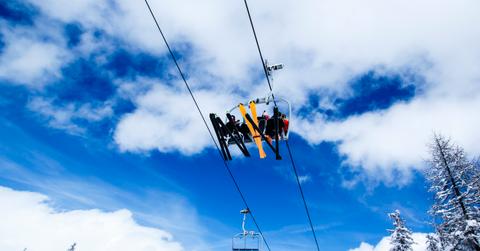How Vail Resorts Plans To Zero Out Their Eco-Impact By 2030
Vail Resorts, the world's largest mountain resort company, recently announced a plan to eliminate its environmental impact by 2030. By then, the company hopes to achieve zero emissions, zero waste, and an offset impact on forests.
Updated May 24 2019, 9:59 a.m. ET
On Tuesday, Vail Resorts announced a plan to eliminate its environmental impact by 2030. This new plan, which the company is calling Epic Promise For A Zero Footprint, calls for a complete elimination of emissions, waste, and net operating impact to forests and habitat within the next 13 years.
With resorts in Colorado, Utah, Vermont, California, Minnesota, Michigan, Wisconsin, New South Wales, Australia, British Columbia and Wyoming, Vail Resorts is the largest mountain resort company in the world. It's easy to imagine that, if the company is able to reach its ambitious zero footprint goal, the impact would be far-reaching. Robert Katz, CEO of Vail Resorts, who announced the Epic Promise For A Zero Footprint at a recent employee meeting, acknowledged that the size of his company gives it the potential to create large-scale change, telling the Denver Post that, "our size and scale helps."
Katz, who has always made environmental advocacy a key element of Vail Resorts business model, also stated that he doesn't just see such advocacy as important for the environment, but also as "an important business goal too. It means we are being smart about not only the resources we use inside the company, but also how we use any resources outside the company … particularly when the environment is both our product and our passion."
Katz has a fair point; companies like Vail Resorts could not function without large amounts of mountain land. But just how much of an impact do resorts usually have on the surrounding environment? Unfortunately, more than you may think. According to ThoughtCo, ski resorts negatively impact the environment in four key ways: by disturbing wildlife, by contributing to deforestation, by using large amounts of water and by causing carbon emissions via the burning of fossil fuels.
Wildlife is disturbed when ski resorts clear away land, during construction and routine maintenance. This clearing of large swaths of mountain land also contributes to deforestation. In recent years, ski resorts have been affected by climate change, as winters grow shorter. This means that they must create artificial snow using massive amounts of water. Just how massive? A modestly-sized resort uses around 4,200 gallons of water a minute in producing its snow.
These facts make Vail Resorts's environmental goals seem almost unreachable. But the company seems to have a solid plan in place, which according to the Epic Promise for a Zero Footprint's website includes purchasing renewable energy equivalent to their total electrical energy use, sourcing more recycling and compostable products from vendors, and planting or restoring an acre of forest for every acre of forest disrupted by resort development.
In addition to the announcement of their zero impact goal, Vail Resorts also solidified their public commitment to the environment by announcing that they would be joining RE100, a group of global companies committed to improving their environmental standards over the coming decades by switching to 100 percent renewable energy. Other members include Coca Cola, Ikea, and Apple. It's easy to imagine that, if most or even some of these large companies are able to meet their energy goals, the future of business could soon be looking a lot greener.
